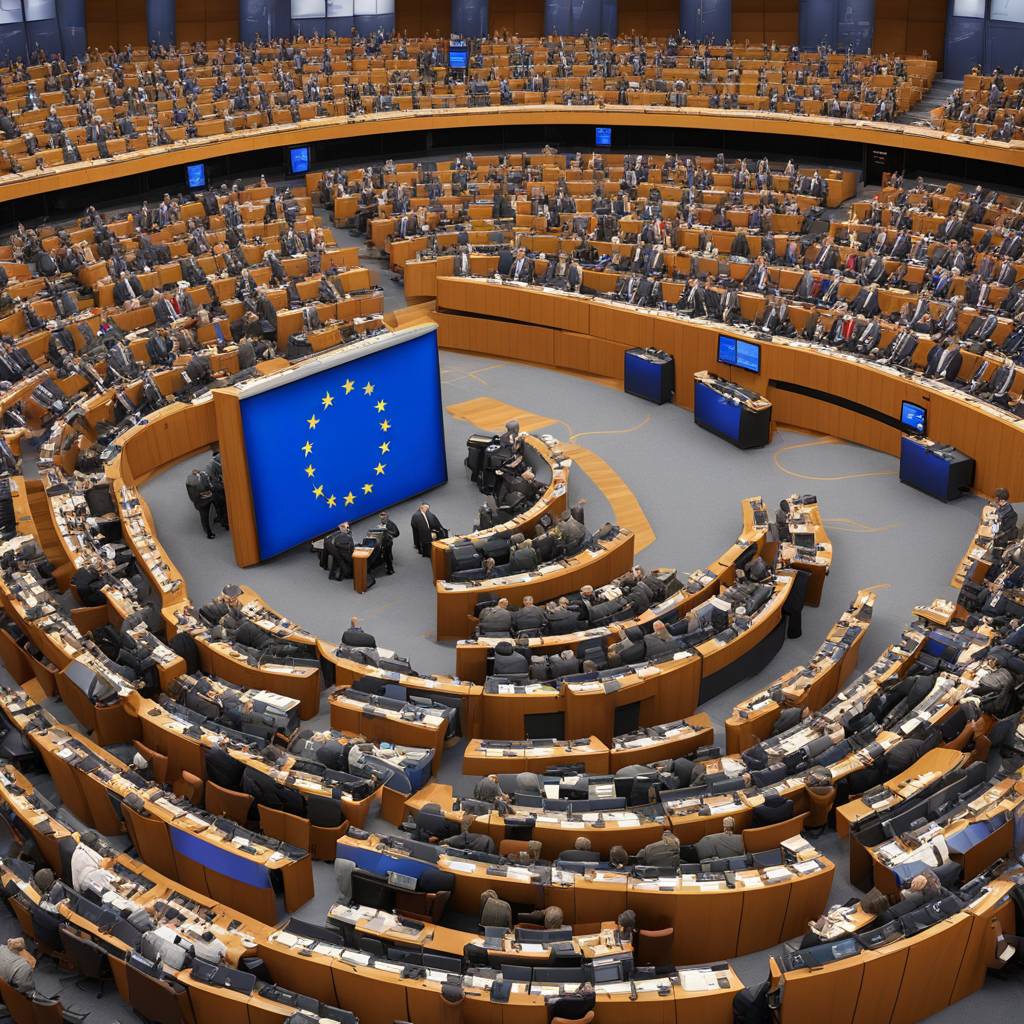The European Parliament is investigating allegations that some of its members were paid by a Russian propaganda network that was uncovered by Czech authorities. Belgian Prime Minister Alexander De Croo stated that Russia had approached EU lawmakers and paid them to promote Russian propaganda in Europe. The Parliament’s services are working in coordination with its partners to respond to the allegations, which are seen as a clear attack on the parliament’s democratic mandate. It is unclear how many MEPs could be under scrutiny, but there are mounting fears that Kremlin proxies could be using information manipulation to influence the upcoming European elections.
The operation that was foiled by the Czech authorities involved the news company Voice of Europe, which was used by pro-Kremlin Ukrainian politician Viktor Medvedchuk to spread propaganda aimed at undermining Ukraine’s territorial integrity. Czech Prime Minister Petr Fiala stated that the operation aimed to destabilize Europe as a whole, leading to investigations in other European countries. Poland’s Internal Security Agency has also conducted searches in response to the allegations, which could lead to further accusations. European Commission vice-president Věra Jourová accused Putin of using dodgy outlets to influence domestic parties, emphasizing the seriousness of the situation.
The Voice of Europe is at the center of the allegations, as it hosted a debate at the European Parliament just days before the investigation was revealed. The company claims to provide uncensored news from Europe and the world but has been sanctioned by the Czech Republic. Its social media accounts have been inactive since the allegations surfaced, but its Telegram account remains active. The company had access to the parliament and its members, featuring videos of MEPs, primarily from far-right groups. Renew Europe’s Valérie Hayer has called for the company’s access to the parliament to be suspended and for EU-wide sanctions to be imposed.
The allegations have raised concerns about foreign interference in European elections, with fears that the democratic vote could be manipulated by outside influences. The fact that MEPs may have been paid by a Russian propaganda network to promote certain agendas is seen as a threat to the democratic process. The European Parliament is taking the allegations seriously and working with its partners to investigate the extent of the involvement of its members. The situation could have far-reaching implications for European politics and the relationship between the EU and Russia.
The involvement of multiple European countries in the investigation underscores the seriousness of the situation and the potential impact of the allegations. The fact that politicians from Germany, France, Poland, Belgium, the Netherlands, and Hungary are implicated raises concerns about the extent of the influence of the Russian propaganda network. The investigations conducted by different countries highlight the need for a coordinated response to combat foreign interference in European politics. The focus on the Voice of Europe as a key player in the propaganda network suggests the importance of monitoring media outlets that may be used to spread disinformation and influence public opinion.
In conclusion, the European Parliament’s investigation into allegations of MEPs being paid by a Russian propaganda network highlights the vulnerability of European politics to foreign interference. The uncovered operation involving the Voice of Europe and various European politicians raises concerns about the integrity of the democratic process. The response from European authorities, including sanctions and investigations, demonstrates a commitment to maintaining the independence and transparency of European elections. The situation underscores the importance of vigilance in monitoring media outlets and protecting against manipulation by external actors. The outcome of the investigation will likely have significant implications for European politics and relations with Russia.













